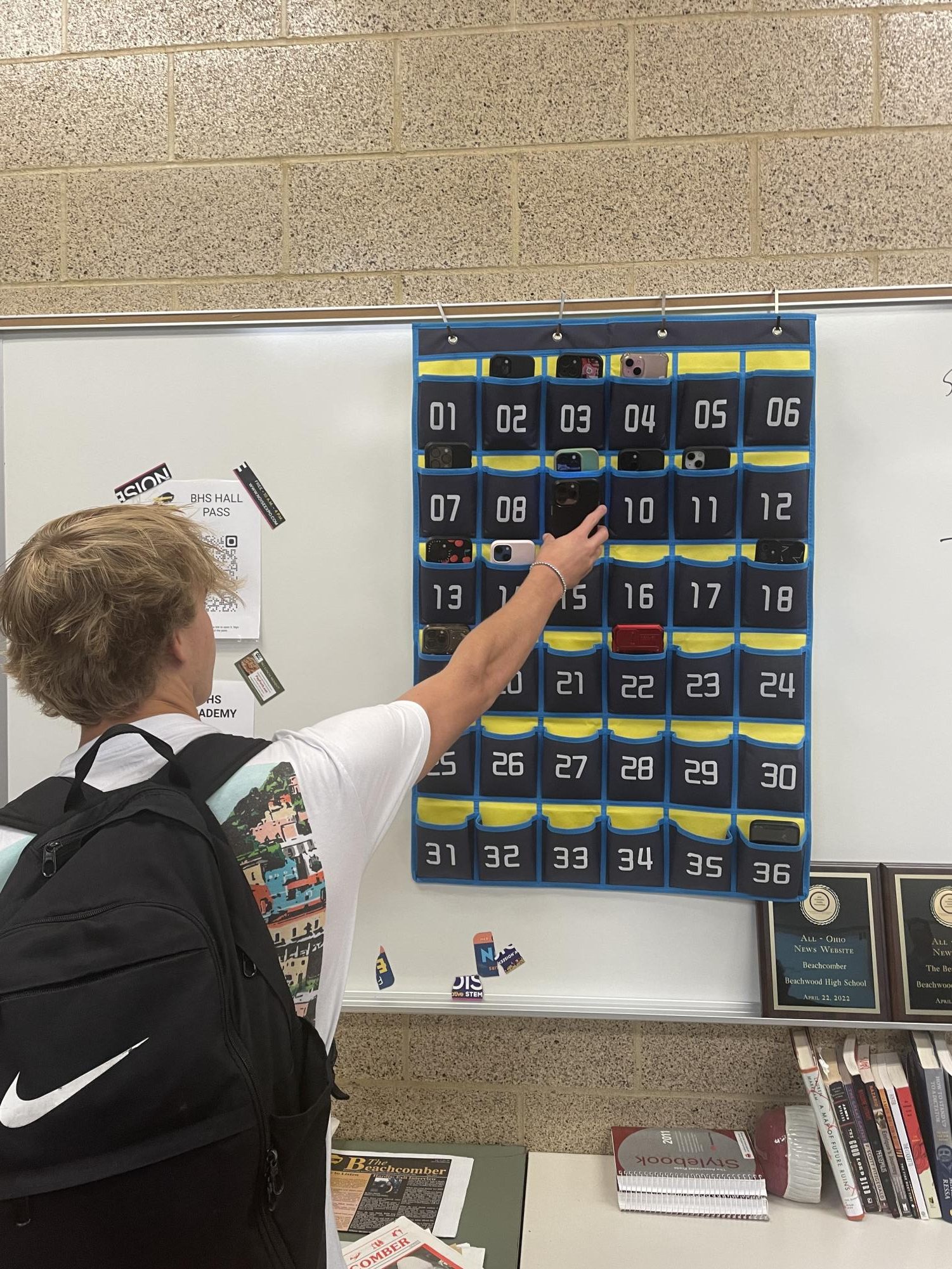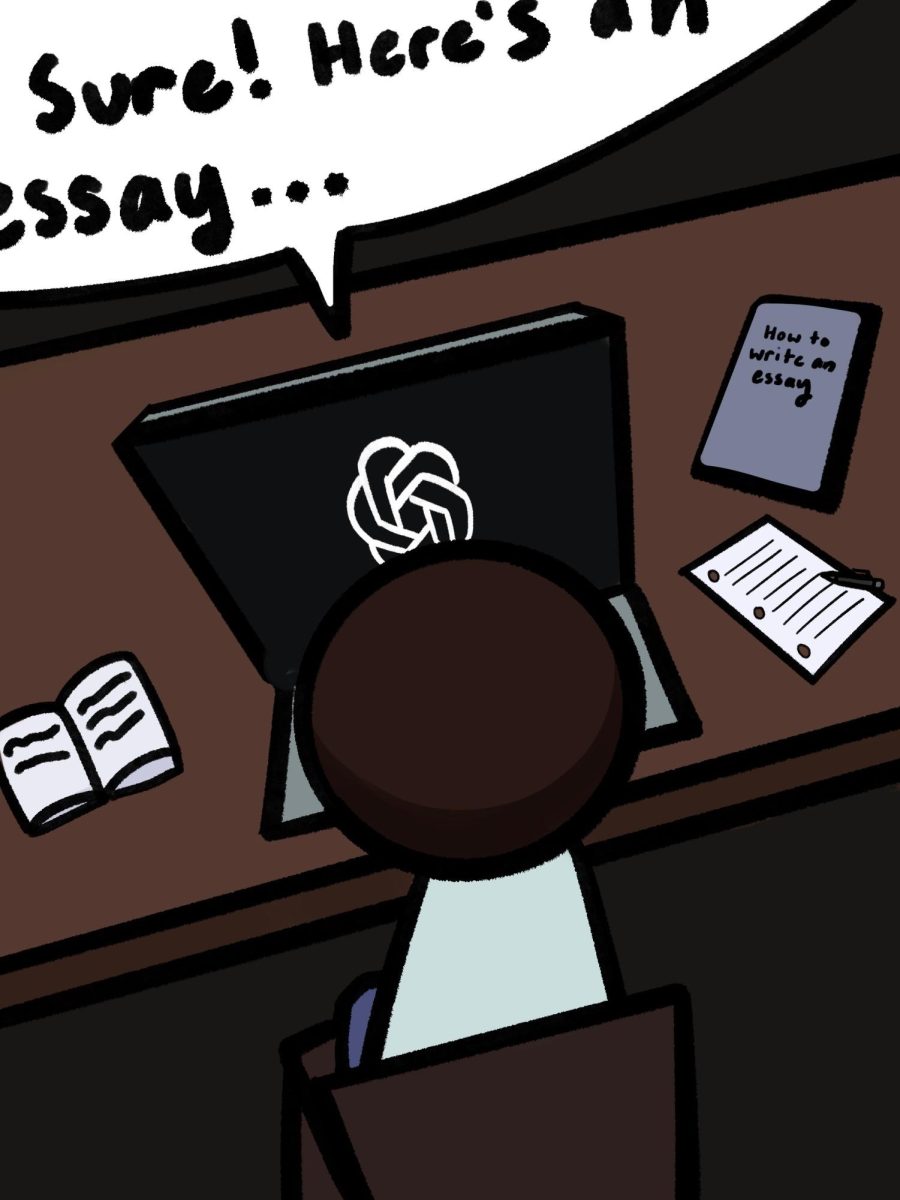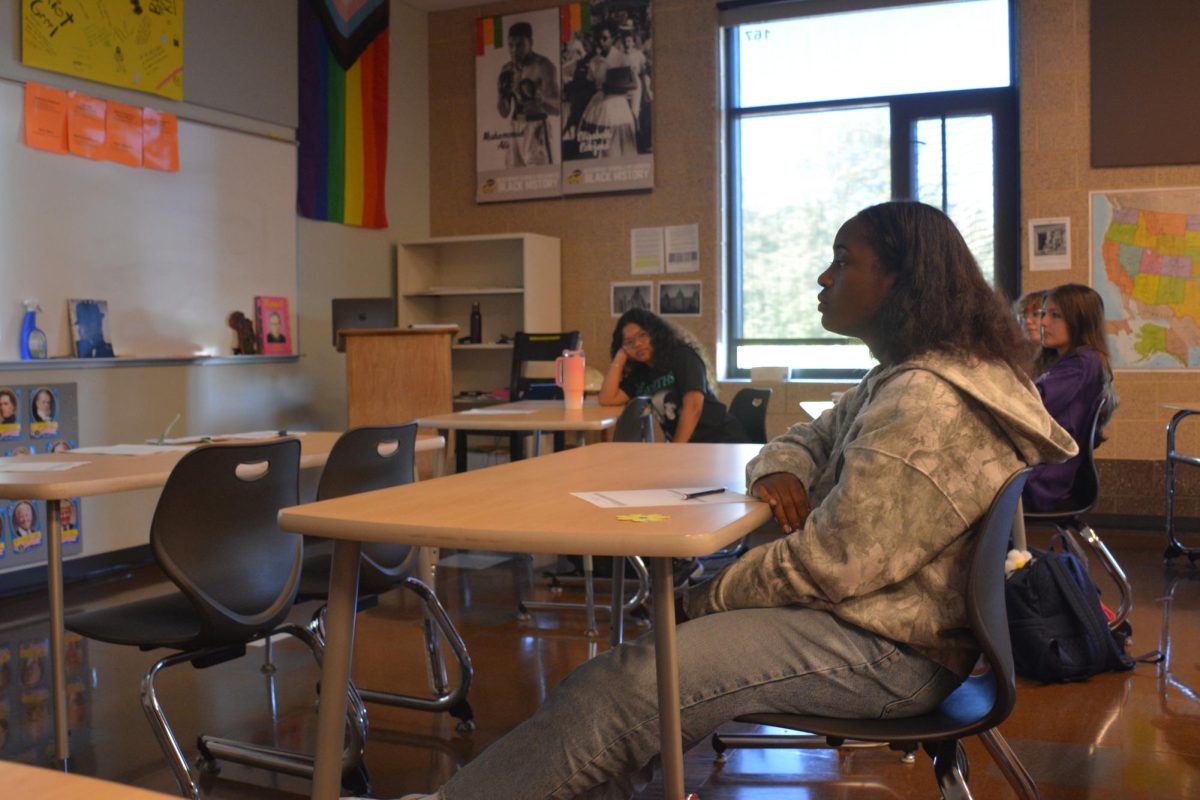Ohio Governor Mike DeWine signed House Bill 250 on May 15, requiring school districts to draft and implement policies to reduce cell phone use during the school day.
The law aims to minimize distractions and cyber bullying and to enhance learning in Ohio schools. Districts are mandated to create and submit these policies by July of 2025, giving them one school year for modifications if necessary.
“Not only is this time precious for the educational development of our children, but we also have a responsibility to safeguard our kids from the nonstop barrage of alerts from the internet and social media that have been proven to be damaging to their mental health,” Governor DeWine said.
BHS has complied with the law by requiring the use of classroom cell phone pouches that teachers hang in their classrooms. Cell phones and smartwatches must be kept in the pouches at the start of classes and may not be used in hallways, offices, or restrooms during instructional time.
If a student is caught using a cell phone during instructional time, consequences are tiered from the assistant principal holding the phone for the remainder of the day for the first offense to the student being barred from bringing their phone to school for the remainder of the year after the fourth offense.
Additionally, students who refuse to hand their phone over to a staff member upon request will receive further disciplinary consequences.
Principal Paul Chase worked with the administration to craft a policy that would not be too restrictive.
“I really want to give BHS students an opportunity to be responsible,” Chase said. “I know for a fact, many schools have gone to the opposite, where it’s just automatically banned from schools or must be kept in your locker.”
According to Chase, last year there was a pilot program where approximately half of the BHS staff required students to place their phones in the pouches.
“We heard that the governor was going to have the law in place, so I spoke to the central office administration, Dr. Hardis and everyone in the Board of Education and got some feedback,” he said. “I said the pilot program shows a lot of promise, especially if we do it with everyone.”
BHS is also continuing to use digital hall passes, which requires students to use a link on Google Classroom or a QR code posted by the cell phone pouch when leaving class and to sign back in when they return.
Chase has also assigned teachers to hall duty to make sure that students are not hanging out in the hallways or on their phones.
BHS students have mixed feelings about the new policy.
“I think that the restriction of cell phones definitely helps in some academic ways, but it’s very harsh and we shouldn’t have to put our phones up like that,” senior Mia Shcherbakov said.
She, along with junior Ethan Malek, believe that the policy would work just as well if they were mandated to keep their cell phones in their backpacks for the entirety of the classes.
Additionally, the policy restricts students from being able to listen to music while completing independent classwork.
“Sometimes people like to listen to music to stay focused on their work,” Malek said.
Chase reported that the policy has been working well so far aside from a couple of students caught with phones.
“So far, very happy,” he said. “I think we’ve only had a couple handful level one [punishments] where the phone was taken away.”




![“My parents have always said that education is important. My parents are Chinese immigrants, I'm Chinese American, [and that's a] value that has always been ingrained in our community,” said Senior Lyndia Zheng, pictured with Tony Zheng](https://bcomber.org/wp-content/uploads/2025/10/DSC_4244.jpg)









